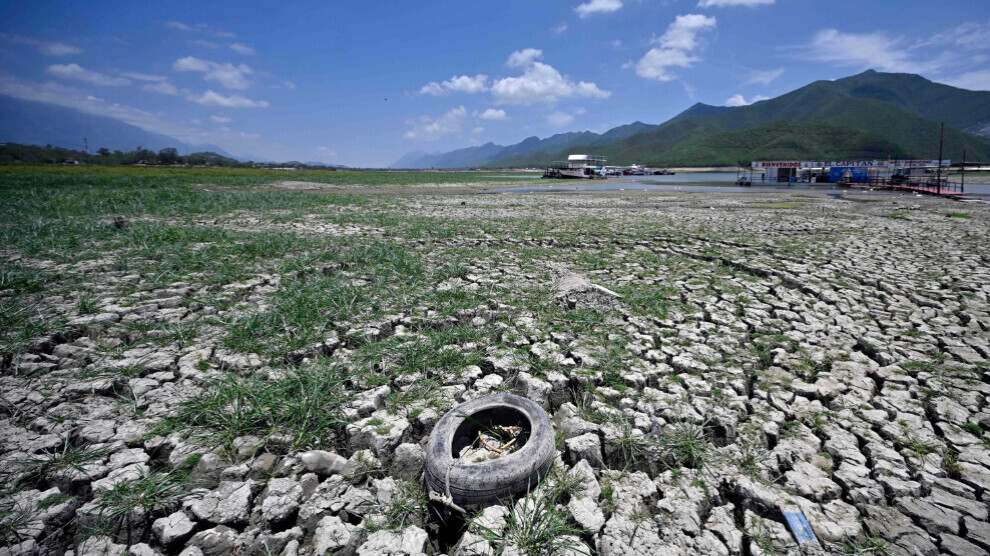Water politics in the Tigris basin – A view from South Kurdistan
Anuradha Jangra from Jawaharlal Nehru University stated that the water policies of Turkey and Iran affect Southern Kurdistan and Iraq.
Anuradha Jangra from Jawaharlal Nehru University stated that the water policies of Turkey and Iran affect Southern Kurdistan and Iraq.

Water politics in the Tigris basin remain deeply contested. Turkey and Iran’s approaches are unilateral, and their infrastructure projects have had tangible negative effects downstream in Bashur (South) Kurdistan. Whether water can become a tool for cooperation—unlike oil—remains a critical question.
At the 4th Kurdish Studies Conference in Erbil researcher Anuradha Jangra discussed the complex dynamics of water politics between Iraq, Turkey, and Iran.
Anuradha Jangra is a researcher at Jawaharhal Nehru University. She spoke to ANF about the water crisis, Turkey and Iran and Iraq's approach to Tigris basin.
In your presentation at the 4th International Kurdish Studies Conference, you spoke about the hydro policies of Turkey and Iran. Could you explain a bit more about what those policies are and how they function?
I’m working on the issue of water as a federal concern in Iraq, specifically focusing on the Kurdistan Regional Government (KRG). Geographically, the KRG is upstream relative to Baghdad, but downstream in relation to Turkey and Iran. My main focus is on the Tigris River and its tributaries—most of which originate in Turkey and Iran, flow into KRG, and then continue into the rest of Iraq.
I’m examining whether water could serve as an area of cooperation between KRG and Baghdad, unlike oil, which remains a point of contention. According to the Iraqi constitution, the federal government in Baghdad has the authority to negotiate over transboundary waters. So I’m looking into how both KRG and Baghdad are dealing with the water crisis—and how their relationships with upstream neighbors factor into this.
Right now, I’m working on the second chapter of my thesis, which includes technical descriptions and data about river flows. A major challenge is the lack of data in the region. While transboundary water is not the central part of my research, it is still crucial because water management in Iraq is directly affected by the policies of Turkey and Iran.
What differences have you observed between Turkish and Iranian hydro policies?
Turkey uses the principle of absolute sovereignty over the Tigris river and its tributaries, arguing that since rivers originate there, it has the right to control them. However, Turkey also acknowledges the principle of equitable use—yet always places its national interests first. It avoids regional or international frameworks and prefers to negotiate bilaterally. For instance, Turkey deals separately with Iraq and Syria. While there was a treaty signed in 1946 with Iraq, it was never ratified, and Turkey’s major Southeastern Anatolia Project (GAP) has intensified tensions since then.
Turkey argues that these are not international waters but rather transboundary rivers, emphasizing national autonomy over shared governance. However, Turkey has shown some willingness to discuss water-sharing through memorandums of understanding (MoUs), such as those signed in 2009, 2014, 2020, and 2024—with KRG often included in these discussions.
In contrast, Iran has been less open to negotiations. It continues to build dams and tunnels that divert tributary waters into its own central regions. These diversions have significant downstream impacts. Iran’s approach is more unilateral, with little evidence of formal bilateral engagement with Iraq on water-sharing.
Have you observed how these hydro policies are affecting residents in the KRG?
I’ve tried to find research data on Turkey’s recent dam activity along the Tigris, but most studies are forward-looking and don’t yet show concrete impacts. With Iran, however, there’s much more reported evidence.
For instance, the Sirvan and Little Zap rivers—both originating in Iran—have shown decreasing water flow in the summer months since 2017. I compiled data showing that from June to August, the flow consistently declined, especially affecting the Sulaymaniyah region. One article from 2017 mentioned that the flow dropped below 50 cubic meters per second, and similar issues occurred in 2018, 2020, 2021, and 2022.
These water shortages impacted fisheries, a key livelihood in the area. Reports indicated mass fish deaths due to reduced water levels. Erbil also relies heavily on the Greater Zab for its water supply. While the Greater Zab hasn’t been dammed yet, there are plans, and this raises concerns for future water security in the region.
Turkey signed an agreement with Syria in 1987, obligating it to release 500 m³/s of water. Is there a similar agreement between Turkey and Iraq regarding the Tigris?
I’ve been working on this section of my thesis. There are reports suggesting that Turkey has allowed a certain water quota to Iraq, but it’s very difficult to find consistent figures. I’m still trying to verify this through various sources, as many of them don’t specify exact amounts.
In terms of international law, how should water be shared equitably?
This is one of the most complex issues. It all comes down to how the rivers are defined legally. The 1997 UN Convention on the Law of Non-Navigational Uses of International Watercourses tried to set standards for equitable sharing. However, Turkey voted against it, and Iraq, surprisingly, did not sign it—though it did accept it in principle. I’m still trying to understand what “acceptance” entails in legal terms.
Recently, Iraq became a party to another international water treaty, but again, Turkey is not a signatory. Turkey continues to argue that these rivers are not international but transboundary, which limits the scope for international mechanisms. This is why Turkey prefers bilateral approaches rather than multilateral governance.